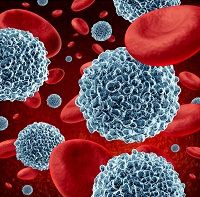Retraining the Immune System Could "Switch Off" Multiple Sclerosis
The body's immune system can be "taught" not to attack its own cells, such as in the case of multiple sclerosis, according to research published in Nature Communications.

Scientists may be able to reverse the body’s immune system destroying its own tissue by mistake, such as in the case of multiple sclerosis (MS), according to research published in Nature Communications.
Researchers from the University of Bristol in the United Kingdom selectively targeted human cells that cause various autoimmune diseases by reducing their aggression toward the body’s own tissues. The researchers were able to convert them into cells capable of protecting against disease. Previously, this method had been applied to allergies, known then as “allergic desensitization.”
The investigators examined immune cells to verify which genes and proteins turned on or off after the treatment. The gene expressions changed by the antigenic fragment injection may explain how effective treatment leads to conversion of aggressor cells into protector cells. After treatment, an individual’s own immune system ignores its own tissues and effectively fights against infection.
“Insight into the molecular basis of antigen-specific immunotherapy opens up exciting new opportunities to enhance the selectivity of the approach while providing valuable markers with which to measure effective treatment,” David Wraith, BSc, PhD, the leader of the study and professor in the Experimental Pathology department at the university, said in a press release. “These findings have important implications for the many patients suffering from autoimmune conditions that are currently difficult to treat.”
Currently, autoimmune disease treatments designed to suppress the immune system have many side effects, including tumor development and the interruption of natural regulatory mechanisms.
“The immune system works by recognizing antigens which could cause infection,” Bronwen Burton, first author of the study, told the Telegraph in the UK. “In allergies the immune system mounts a response to something like pollen or nuts because it wrongly believes they will harm the body. But in autoimmune diseases the immune systems sees little protein fragments in your own tissue as foreign invaders and starts attacking them. What we have found is that by synthesizing those proteins in a soluble form we can desensitize the immune system by giving an escalating dose.”
The research team believes that their breakthrough will lead to a wide variety of antigen-specific immunotherapy for various diseases, including MS, but also in type 1 diabetes, Graves’ disease, and systemic lupus erythematosus (SLE).